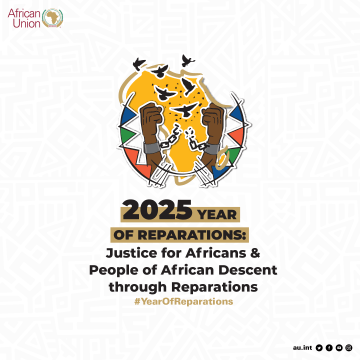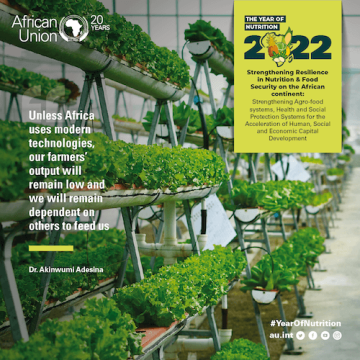The organization of an inclusive national structure to implement the APRM is highly crucial to the success of the APRM process. The participation diverse key stakeholders in the APRM is in itself a central aspect of enhancing the state of governance and socio-economic development in the participating country. Such interactions can build trust, establish and clarify mechanisms for ongoing engagement and empowerment of stakeholders.
The Guidelines for Countries to Prepare for and to Participate in the APRM (Country Guidelines) call for countries to put in place relevant structures to facilitate the effective implementation of the APRM. From the countries reviewed so far, the practice has been to designate the following:
National Focal Point
The Country Guidelines recommend that the Focal Point for the APRM ideally should be established at a Ministerial level, or a high level government official that reports directly to the Head of State or Government. The practice has been divergent in many countries some appoint Ministry of Foreign Affairs as this is the Ministry that traditionally handled Trade Regional Integration and by extension NEPAD/APRM Issues. Others appoint officials in the Presidency as the APRM is a key initiative and commitment by the Head of State or Government. For some it is the Ministry of Finance, Planning, Public Service or other ministry concerned with social and developmental issues.
However, it is critical that the work of the APR Focal Point is inclusive, integrated and coordinated with existing policy-decision and medium-term planning processes.
National Commission
This is the body that provides strategic policy direction to the implementation of the APRM. This body must contain upstanding citizens who command the respect of the general public. The Country Guidelines provide that the National Commission established to manage the process at national level should be autonomous from government and inclusive of all key stakeholders. In this context, membership must be diverse and representative to ensure to the spirit of the APRM – broad-based participation.
Composition: Both state and non-state actors participate in the process. This includes some representatives of key line ministries, civil society, parliament, media, private sector, youth, women groups, disabled, marginalized groups, rural populations etc. The National Commission should offer a microcosm of the nation. Where possible, it should be chaired by a non-state functionary. If the commission is too small, it may bring perceptions of non-inclusivity. If too large, it may make decision-making cumbersome and would be encouraged to appoint an executive council from itself.
Responsibilities: In addition to providing guidance in terms of policy direction, the Commission/Council is expected to ensure professionalism, credibility and independence of the process. The NC/NGC is also to ensure that the process is technical and free from political manipulation. The NC/NGC is supposed to lead the sensitization programmes country-wide and ensure that all stakeholders participate in the process so as to create ownership
The NGC must have clear written terms of reference for operation. Other issues that need to be worked out include: legal status of the same (gazettement, inauguration etc), terms of service (honoraria etc) and duration of appointment. It is recommended that the NGC be involved in follow up of implementation of POA.
With regards to the POA, the NGC must ensure that all the concerns outlined in the self-assessment report are addressed in the POA. The NGC must also ensure that the POA meets all the criteria identified in the guidelines (i.e. costing, timeframes, outputs etc).
National APR Secretariat
The National APR Secretariat provides technical and administrative support to the National Commission/Governing Council. They assist the NC/NGC in organizing sensitization programmes at the national and local levels. The Secretariat (which should have ideally a CEO or Executive Director) will also be responsible for liaising between the NC/NGC and the continental APRM Secretariat in South Africa. The Secretariat should also facilitate and support and the work of the technical research institutions.
The National Secretariat should be established outside of government structures and supported by a sufficient independent budget. The National Secretariat should report directly to the National Governing Council.
Technical Research Institutions
These are the institutions that assume the responsibility of executing the APRM Questionnaire. They should be well-known for their competence and technical capabilities to conduct sound and objective research in the four APRM thematic areas. The TRIs will be collating data, analyzing and presenting the views of the general population. The research methodology should therefore rely on multi-method approach (qualitative and quantitative) to ensure comprehensive data collection. The final output should undergo validation to ensure that the report is representative of the public views.
The TRIs are appointed by the NGC and report directly to it. A contractual agreement protecting the intellectual property of the self assessment should be signed. The NGC has to protect the confidentiality of the self-assessment process so as not to prejudice or pre-empt the ensuing stages of deliberation of the report by the Panel and Forum.
Budgetary Framework
It is advisable for the country to see to it that budget for the APRM is independently managed in order to promote sustainability. The country should also endeavor to keep the budget at a minimum and link the disbursement of funds to outputs and activities so as to control the level spending. Prudent financial planning in the early stages by the NGC to cover all the activities from inception to completion and periodic accounting of expenses is highly critical to the success of the APRM process.







